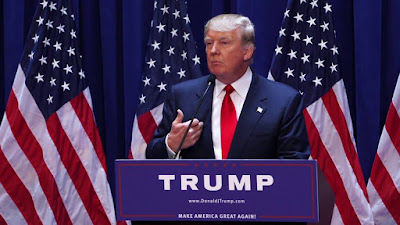The core of the right to free speech is that each of us deserves to be heard. Basic human respect requires we take the time to listen and reflect upon our several opinions.
However, basic self-respect requires that when, upon reflection, we realize that what someone has said is complete and utter nonsense, we state--plainly, bluntly, unequivocally--that it is complete and utter nonsense.
Consider this bit of balderdash from Lawrence Lessig, Harvard Law School professor and lawyer of some renown:
Conventional wisdom tells us that the electoral college requires that the person who lost the popular vote this year must nonetheless become our president. That view is an insult to our framers. It is compelled by nothing in our Constitution. It should be rejected by anyone with any understanding of our democratic traditions — most important, the electors themselves.
What makes this seemingly reasonably phrased paragraph balderdash? Upon inspection, quite a few things.
The most glaring error is a rather unforgivable error of fact--namely, that a popular vote for the nation's Chief Executive is somehow within the Constitutional order of things. It is not. The text of the Constitution flatly contradicts this idea,
Article II, Section 1, Clause 2 states:
Each State shall appoint, in such Manner as the Legislature thereof may direct, a Number of Electors, equal to the whole Number of Senators and Representatives to which the State may be entitled in the Congress: but no Senator or Representative, or Person holding an Office of Trust or Profit under the United States, shall be appointed an Elector.
This particular clause of the Constitution has never been amended. Clause 3 of Article II, Section 1, was rewritten by the Twelfth Amendment, and Clause 6 by Amendments Twenty and Twenty-Five, but that is the extent to which Article II--which governs the office of the President--has been modified from the original text.
This particular clause is clear and unmistakable in its language: The states, acting principally through the agency of their respective legislatures, select Electors, who in turn cast their votes for President and Vice-President of the United States. Nothing in the Constitution requires that any state hold a popular vote as part of the selection process--and the historical fact is that in the Presidential elections of 1788-1789 and 1792, only six states held a popular vote of any kind. The remaining states appointed their electors via the legislature.
While the popular vote method of choosing electors has become ubiquitous throughout the Republic, it very much remains at the discretion of state legislatures--and in theory a state could abandon the popular vote mechanism at any time through a simple act of the legislature. Professor Lessig is factually in error when he speaks of a monolithic "popular vote" and factually in error again when he suggests that the Constitution is silent on the matter. The Constitution is explicit on how a President is elected: States elect the President.
Professor Lessig is also therefore guilty of an egregious error of logic when he states that an Electoral College outcome that is at odds with a nationwide amalgamation of state popular votes is somehow an insult to the framers of the Constitution. The framers of the Constitution did not assign the election of the President to "the people", but to the states, and further very explicitly called upon state legislatures to decide the particulars of each state's process for appointing Electors. The nationwide vote total is legally, politically, and historically irrelevant. Surely Professor Lessig knows this--for surely anyone who reads the Constitution can see this (one hopes that the Constitution is still taught in Harvard Law School).
Professor Lessig is also guilty of erroneous historical statement when he speaks of the operation of the Electoral College being at odds with our historical traditions. The earliest historical tradition of American governance is that the Constitution defers to state legislatures in the selection of Presidents and Senators (South Carolina did not hold popular votes until after the Civil War).
Debunking Lessig's thesis takes but a few moments of perusing the text of the Constitution--and the Constitution fully and flatly rejects Professor Lessig's thesis in its entirety. Simply put, he is wrong.
Professor Lessig is entitled to his opinion. He deserves a chance to be heard. The First Amendment and basic decency demand of us no less than this. But honesty, intellectual integrity, and that same basic decency demand of him--and of all of us--that we at least ensure our statements of fact are accurate, that our logic is sound, that our reasoning sober and grounded. Professor Lessig has failed in all these respects, and while he retains his right of free speech, he retains also the right to be ridiculed for being foolish. That is precisely what his thesis is: foolish. There is no Constitutional foundation for any of it, nor for the trope of a national popular vote in the election of the American President.
As important as discussion and debate over the merits and demerits of our electoral system are, the one absolute imperative upon everyone--and in particular lawyers and professors of law such as Lawrence Lessig--is that we read the text of the Constitution accurately.













